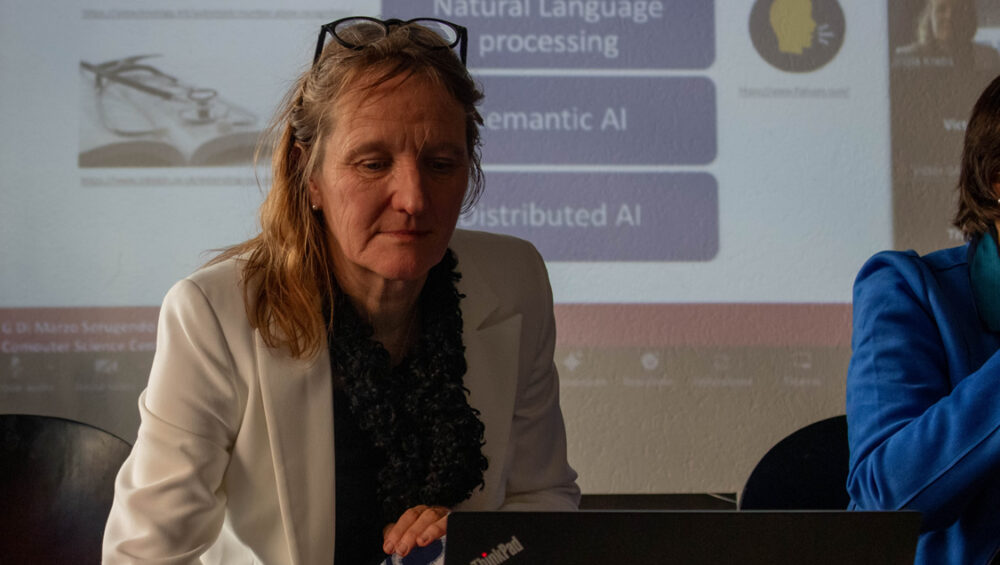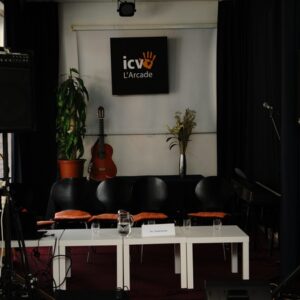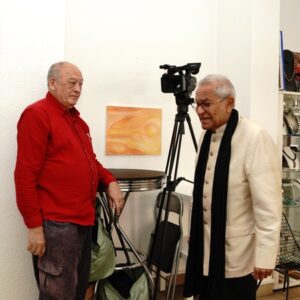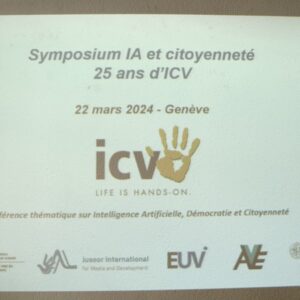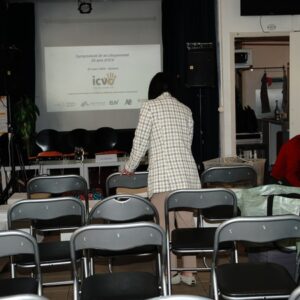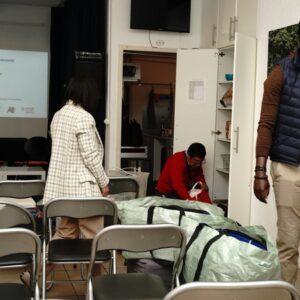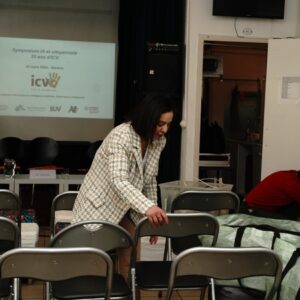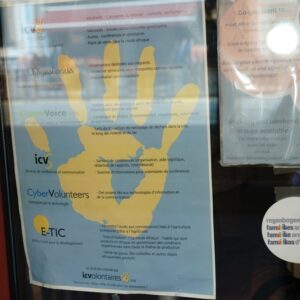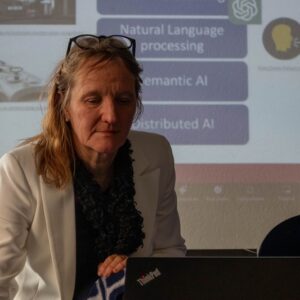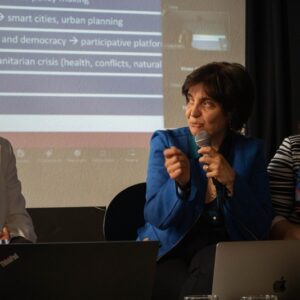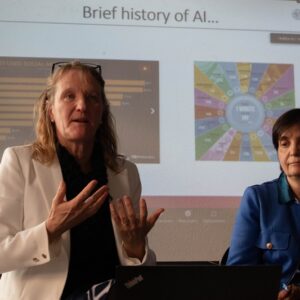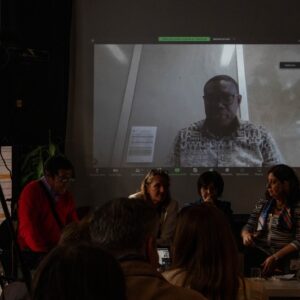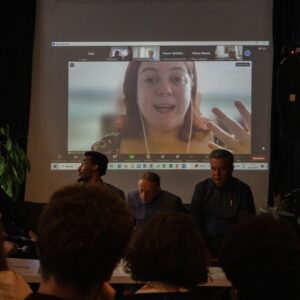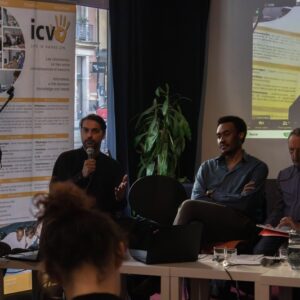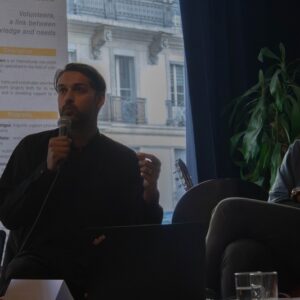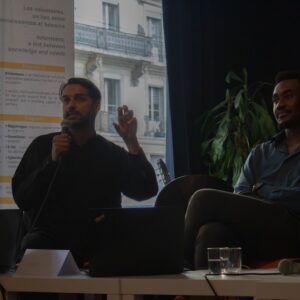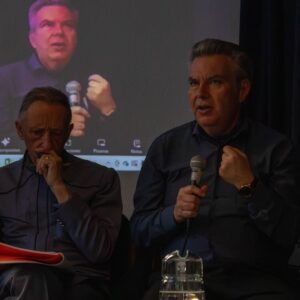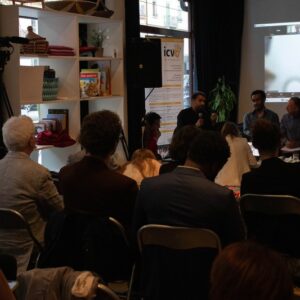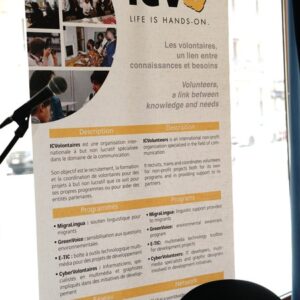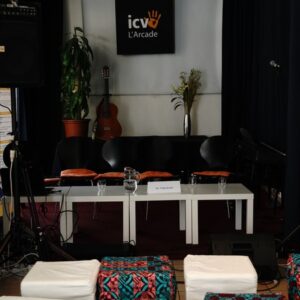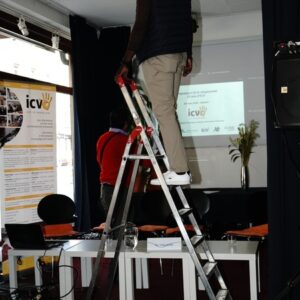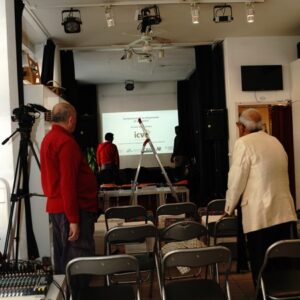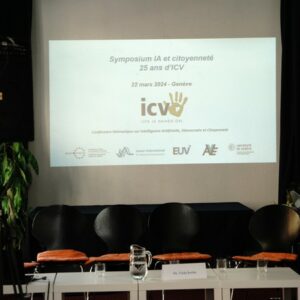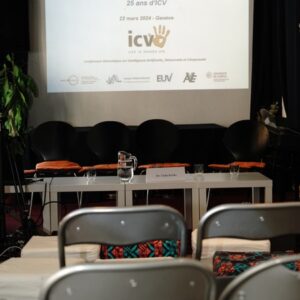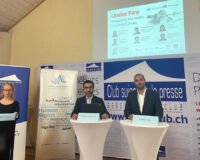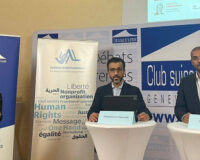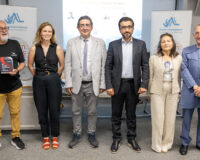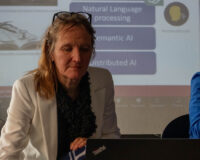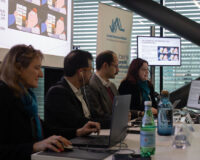The Symposium on AI and Citizenship commemorated 25 years of ICVolunteers with an insightful exploration of the ethical dimensions of AI in contemporary society.
Held at the ICV Arcade in Geneva, the event featured a series of engaging panel discussions moderated by prominent experts in the field. The program commenced with a warm welcome and the opening of the Symposium, followed by a the matic conference on ‘Artificial Intelligence, Democracy, and Citizenship,’ which delved into the intersection of AI with democratic values and civic engagement. This was succeeded bya reflective roundtable on ‘AI, Ethics, and Human Rights,’which addressed the ethical implications of AI deployment, particularly in conflict zones.
The symposium was proudly supported by Jusoor International, recognizing the importance of engaging with organizations like ICVolunteers.
As partners, Jusoor International collaborates with ICVolunteers due to its extensive work in communication, language, and technology support for humanitarian and social causes.Through volunteer efforts, both organizations work together to implement projects and conferences at local, national, and international levels, aiming to foster social and educational development in communities worldwide. Jusoor’s involvement underscores the commitment to promoting volunteerism, civic engagement, and humanitarian initiatives on a global scale.
Launching the symposium, moderated by Daphné Romy , Sociolinguist, the panel discussion commenced with insightful perspectives from experts in various domains of AI and citizenship. Giovanna di Marzo Serugendo , Director of the Center for Informatics at the University of Geneva (CUI), expanded upon a diverse range of AI applications, illuminating the open possibilities within the field. Viola Krebs, PhD , also addressed the crucial linkages between citizenship and AI, shedding light on the transformative potential of AI in shaping civic engagement and societal participation. Abdoulaye Salifou , representing UNESCO Ethiopia, provided vital insights into the intersection of AI with the African context, emphasizing its implications for the continent’s development and governance. Lastly, Tam Anh , from the University of Economics Ho Chi Minh City (UEH), Vietnam, shared pioneering applications of AI tailored for the new generations in Vietnam, showcasing innovative approaches to technology adoption and community empowerment. Together, these diverse perspectives enriched the discourse, offering multifaceted insights into the global implications of AI and citizenship.
In the roundtable discussion moderated by Patrick Taran, President of Global Migration Policy Associates, a diverse array of speakers provided unique perspectives on AI, ethics, and human rights.Gerhard Ermischer, President of the Conference of INGOs in the Council of Europe, brought extensive insights from his leadership role in international non-governmental organizations. Ezekiel Kwetchi Takam,a doctoral student specializing in AI and ethics at the Faculty of Theology of the University of Geneva, offered scholarly perspectives on the ethical dimensions of AI development. Valéria Emília deAquino, a Human Rights Lawyer with expertise in international organizations and courts, shared her deep understanding of human rights law and its intersection with AI technologies. Ousman Noor, Co-Director of the Civilian Agenda, contributed valuable insights from his advocacy work in promoting human rights in conflict zones.
Together, these speakers enriched the discussion with their diverse backgrounds and expertise. The speakers thorough analyzed ethical frameworks in AI development, highlighting the dominance of the deontological approach and advocating for a more comprehensive and inclusive ethical framework.Their insights underscored the necessity of civic engagement and ideological scrutiny to ensure ethically sound progress in addressing the complexities of AI. Additionally, the session delved into the application of AI within the International Criminal Court, scrutinizing its benefits and drawbacks, especially in conflict zones. Concerns were raised about AI’s inability to fully comprehend human ethics and make ethically informed decisions, underscoring the critical importance of ethical considerations in AI deployment. The discussion also depicted the intersection between military AI and autonomous warfare, particularly in ongoing conflicts like Gaza, where AI-driven technologies have been utilized with devastating consequences. The session concluded with an urgent plea for international action to address the ethical and humanitarian implications of AI-driven warfare.
Jusoor International extends heartfelt appreciation to all the speakers, moderators, attendees, and supporters who contributed to the success of the event. Special thanks to Viola Krebs, Ousman Noor, and Valeri aEmília de Aquino. Your insightful contributions, thought ful engagement, and unwavering support have been instrumental in fostering meaningful dialogue and advancing understanding in the field of AI ethics and governance. As we navigate an AI-driven future, let’s forge ahead united in ethical innovation.


